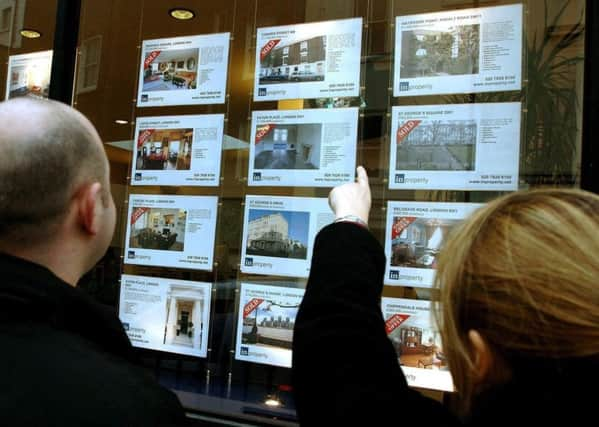Advice for first-time buyers


Q:I am renting a two-bedroom apartment in Leeds which costs me £650 per month. My parents say that it would probably cost the same every month to pay a mortgage, and that I should try to buy instead.
Friends who are in a similar position say that I would need a huge deposit, which I just don’t have, plus it’s hard to save and pay rent at the same time.
Advertisement
Hide AdAdvertisement
Hide AdAlso, I have got a student loan I’m paying off. Is buying somewhere even an option for me?
A. We speak to a lot of first-time buyers and often hear the same thing, which is that many have been wrongly deterred as they believe that they have to save up a sizeable deposit.
Of course, having a substantial amount to put into any purchase is ideal, but you don’t necessarily have to have a ten or twenty per cent deposit in order to get a mortgage these days.
Some mainstream lenders have recently introduced low deposit mortgages specifically designed for first-time buyers which cover the costs of your legal work and standard survey and allow you to borrow up to 95 per cent of the purchase price, meaning that you would need to find a five per cent deposit.
Advertisement
Hide AdAdvertisement
Hide AdSo to put it into context, if you were looking at an apartment in Leeds, you might expect to pay around £120,000. This means that by using one of these ‘first-time buyer friendly’ mortgages and allowing for the fact you won’t be paying
stamp duty - because as a first time buyer you’ll be exempt up to a purchase price of £300,000 - if you were able to save £6,000 you’d be able to buy a property, with your mortgage payment probably in the region of around £525 per month.
But there are some important elements to consider. Your parents are probably quite right, in as much as a monthly mortgage payment is probably very close to your monthly rent bill.
However, borrower affordability calculations play a massive part in all of this too. As the majority of lenders will only allow a maximum of four times your income to determine how much they will lend, once you factor in the student debt that you mention, plus any personal finance agreements, such as a car loan, then the amount that you may be able to borrow may reduce considerably.
Advertisement
Hide AdAdvertisement
Hide AdTo boost your chances, look at any outstanding credit cards, bank loans or finance agreements and try to pay them down or off as soon as you can. Reducing the amount of outstanding credit you have will help to increase the amount you can raise on a mortgage.
Also, nurture your credit score. If you haven’t already done so, hop online to Experian or Noddle and check your credit rating for free. The higher your score the better when it comes to applying for a mortgage. If it’s a little on the low side, then it’s worth getting some professional advice around what you can do to improve it before you start.
If you’re struggling to save, another potential option is that there are specialist lenders who will now accept a five per cent ‘cash back’ from a developer as the deposit if you’re buying a new-build property. This would mean that you’d raise the 95 per cent mortgage as per normal, but instead of saving for a deposit, essentially this would be provided by the house builder.
Hopefully this all just goes to show you that there are a few options potentially open to you. It may be worth booking an appointment with a mortgage broker or adviser to run through your circumstances in detail, and best advise you on next steps.